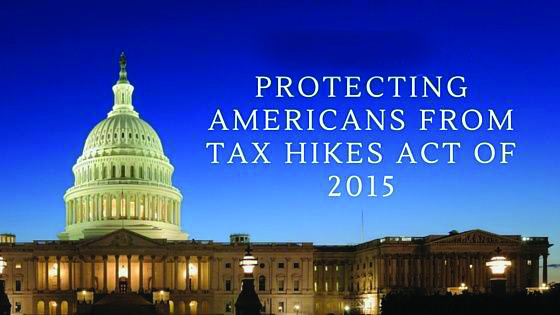By Roy Hayhurst, GuideStone Financial Resources
DALLAS — Legislation signed into law in December will have a positive impact for both those who participate in and those who operate church retirement plans. Provisions of the Protecting Americans from Tax Hikes Act of 2015, commonly referred to as the PATH Act, will allow church retirement plans to include automatic enrollment features in their retirement programs regardless of state wage withholding laws, as well as allow for certain kinds of transfers and mergers between accounts of the same employer. Additionally, provisions addressing counting employees for benefit purposes among certain church-related employers will help distinguish between different kinds of church and denominational governance structures.
The legislation — long sought by a broad coalition of large and historic denominational retirement plan providers — took three Congresses to consider before being tacked onto the PATH Act in December 2015. President Barack Obama signed the bill into law on December 18.
”This bill has been a long-awaited and hard-fought bill to pass,” said O.S. Hawkins, president of GuideStone Financial Resources. “We appreciate all who made this bill a reality.”
A major “win” in this new legislation is leveling the playing field between secular employers’ plans and church-related employers’ plans when it comes to offering automatic enrollment plans. Among the provisions in the law is a component that pre-empts any state law that interferes with the ability of a church plan to offer automatic enrollment programs. Under automatic enrollment programs, employees automatically enroll in the retirement plans at a preset level of deferrals. Employees have the option to opt out or make changes to the amount deferred, and certain notice requirements must be met.
Congress made a similar provision affecting for-profit organizations’ 401(k) employer-sponsored plans in the Pension Protection Act of 2006, but had not expressly included 403(b) plans, leading some to believe that state wage garnishment laws might impact the ability to automatically enroll workers into a 403(b) plan.
According to the U.S. Department of Labor, up to 30 percent of eligible workers choose not to participate in an employer’s retirement plan. Less than 15 percent of eligible workers opt out of an automatic enrollment plan, improving those workers’ chances of a more financially secure retirement.
“Benefit decisions can be overwhelming,” said Joy Roberts, executive director of retirement relationship management at GuideStone Financial Resources. “New employees are asked to make impactful decisions about their retirement plan at the same time they are starting a new job. Many delay getting started or don’t contribute adequately.
“This new legislation will give employers the option to automatically enroll their employees, giving their employees greater financial security in their retirement and making sure that their employees are accessing the full scope of benefits that help retain great employees.”
The legislation also offers additional clarification on control group rules that cause employers to be aggregated for certain benefit purposes such as retirement plan nondiscrimination testing and allows transfers among certain kinds of plans of the same employer. Roberts said GuideStone relationship managers will continue to reach out to affected employers to discuss how this legislation may benefit their organization and employees.
The PATH Act was known as the “taxibus” bill that Congress passed to keep the government running through the 2016 budget year. Sens. Ben Cardin (D-MD) and Rob Portman (R-OH), along with Reps. Pat Tiberi (R-OH) and Richard E. Neal (D-MA), served as cosponsors on the church retirement plan portion of the PATH Act.




